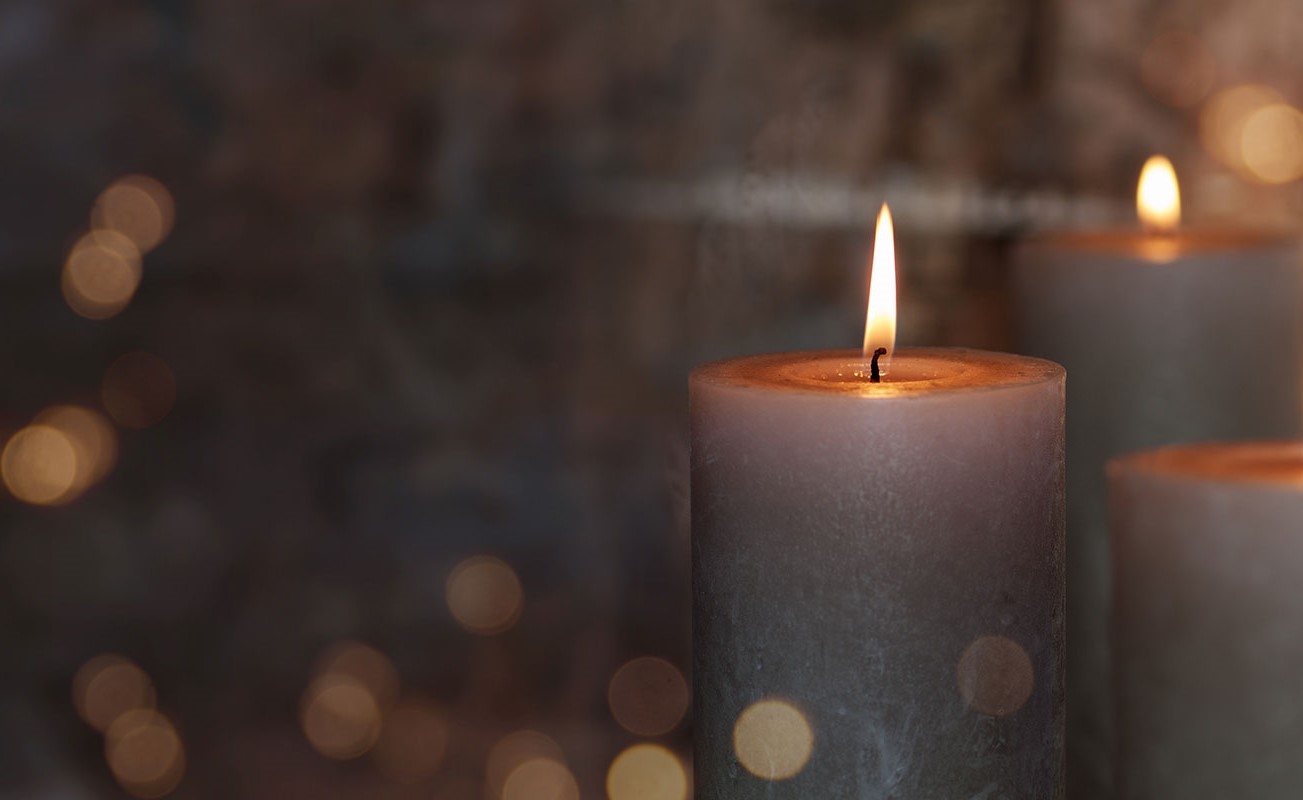
“It’s the most wonderful time of the year,” Andy Williams sings on the radio. And it is. It really is. Who can feel giant snowflakes on their face, see thousands of sparkly lights, taste rich hot chocolate, smell gingerbread cookies baking and watch a child unwrap a gift with utter glee and disagree? The holidays can be full of joy and magic.
But among the merrymaking and mistletoe, there may be moments of mourning too. All of our lives have been touched with some grief and loss; whether the loss of a partner, child, family member or friend. Loss happens to everyone. It does not discriminate.
Our culture has a complicated and often uncomfortable relationship with grief. Much of the subtle and not-so-subtle messaging we receive emphasizes the need to, “stay strong” and “move on,” which tends to be more conducive to suppression than healing.
But a true focus on wellness is more than just eating right, exercising and caring for our body. It is intentionally caring for our spirit as well.
Often in the midst of all the outward holiday cheer, we can miss our loved ones that are no longer with us the most. It can feel jarring at times, the juxtaposition between external festivities and internal moments of grief. Whether the loss occurred recently or long ago, the sights, scents, and sounds of the season can evoke bittersweet memories.
“Yet the holidays also offer us the healing power of ritual,” Dr. Alan D. Wolfelt, from the Center for Loss & Life Transition, writes. “We created holiday rituals in the first place because everyday activities and normal conversation cannot capture our most profound thoughts and feelings….When we light candles in our homes, we can do so in honor of the person who died. When we sing holiday songs, we can allow ourselves to embrace any grief feelings the music stirs within us. Attending services at our place of worship, praying, and meditating are other meaningful ways to tap into the healing power of ritual this holiday season.”
The simple act of recognizing that the holidays may bring up a myriad of emotions, stemming from both joy and grief can be helpful. The awareness, compassion, and acceptance of allowing ourselves to feel what we are feeling—to allow both laughter and tears—can be a powerful part of healing. We do not have to shut ourselves off to the joyfulness of the season to honor our loved one. Nor do we have to be the life of the party, if our heart is hurting.
Working through grief is a deeply personal and individual journey. No one can or should tell another person what path they should take. But one thing the research does agree on is this: Finding healthy ways to express and share feelings of grief is therapeutic.
One way to do that is through creating meaningful and comforting holiday rituals. Consider these ideas while finding your own way of honoring your feelings and your loved one’s memory this holiday season:
•Choose a special gift for your loved one. Wrap it and place it under the tree. After the holidays, personally take and give it to a stranger in need.
•Make or choose a unique ornament, specifically in remembrance of your loved one to hang on the tree each year.
•Set a place at the family table for your loved one. Consider placing a favorite photo of them by their plate.
•Share meaningful memories as a family/group about your loved one. They can be spoken aloud when everyone is together. Or they can be written down and compiled into a treasured keepsake book, to be read for years to come.
•Think about a project or cause that would be deeply meaningful to your loved one. Make a donation in their name.
•Write your loved one a letter on nice paper. Tell them everything you wish you could tell them. Roll it up and tie it with a beautiful ribbon. Place it in their stocking and hang it from the mantel. Do this each year, reading the previous letter before writing the new one.
•Consider publicly honoring them in your faith/friend community, either through a chosen reading, song or candle lighting.
•Pick a volunteer opportunity that you want to participate in to honor them. Share with those you volunteer with, if appropriate, a little about your loved one, and how their memory brought you there.
Dr. Alan D. Wolfelt goes on to make this poignant point, “For many of us, Christmas is the pinnacle holiday of the year. More than any other celebration, it is the day for family and friends, kindness and generosity. It is the day for love. Whether we celebrate Christmas or a different significant holiday…on our special day we feel the losses that are the counterpoint to our love. There is missing, yes, but there is also—still and always—the love.”
It is because of this same love that it is the most wonderful time of year. A time to honor and express our feelings. A time to engage in healing rituals. A time to celebrate. A time to hold the memories of our loved ones no longer with us in our hearts. A time to hold our living loved ones extra close.
Take care of your spirit. Take care of you. May the love, light, and wonder of the season be with you.
Additional Reading:
Helping Yourself Heal During the Holiday Season: http://www.centerforloss.com/2016/12/helping-heal-holiday-season
The Journey Through Grief: The Six Needs of Mourning: http://www.centerforloss.com/2016/12/journey-grief-six-needs-mourning
5 Ways to Honor Sadness Instead of Distracting From It: http://www.psychologytoday.com/us/blog/joyful-parenting/201601/5-ways-honor-sadness-instead-distracting-it
Citation: Wolfelt, Alan, D. Grief One Day at a Time. Companion Press, 2016. Dec. 24th, Dec. 25th.